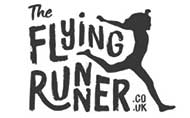Menu
A great pleasure to interview 1986 Commonwealth Games 10,000 metres Champion Jonathan Solly for a Serpie event on Thursday. I've known Jon through the England Athletics Coach Mentor scheme and as well as being a tremendous athlete in his day - winning the UK 10k champs in 27.51 aged just 22, in his track debut at the event - he is a very bright and lively character. Much of his later career is a 'what might have been' scenario given the earlier prowess in events which are usually best suited to athletes in their late 20s to early 30s.
Amongst the wisdom he shared in a wide ranging discussion:-
- pace judgement is just SO important in the longer distances and people should focus on this and try to do so with as much awareness as they can without external techie aids
- think about stress management as an integral part of how you prepare for your peak races, not as an afterthought or as separate mental add on. Perhaps surprisingly, given that his legendary coach Alan Storey had many 'old school' harrier traits in his approach, he benefitted from individual sports psyche sessions, somewhat ahead of his time in terms of UK long distance running
- do use Heart Rate ranges to guide various aspects of your training (without being enslaved to the minutiae), with the easy and steady runs being just as vital to do at the 'right' sort of pace, as the harder sessions
- do build in the conditioning and movement drills BEFORE they become part of injury rehab. His own career was severely curtailed by the frequency of injuries
- an annoying, and of course largely self-evident, message for those who like eating as well as running but losing weight was at least a part of his breakthrough. In his case, at just under 6 ft/1.82, this meant going from high 10 stones to just over 10 stone. As he said, one novelty of the multi-sport nature of the Commonwealth Games 'was that you get to see athletes who don't look like skeletons'. Clearly every runner has to decide what the sacrifice is worth - you don't go all monastic to go from 39 to 38.20 as a 10k runner, but if you are at a level where 30 seconds over 28 minutes makes a step change in performance, well, it almost becomes part of the preparation package. He did mention that the dialogue he had with his coach on whether there were performance gains to be had by 'removing some inessential organs' was never actually implemented.
In a world where everything is now 'awesome' and probably 'world class' too, it was interesting to hear his coach's first response to his marathon debut, in 2.12.07 (when he had hoped to win, which needed 2.11 on the day) - ' 'Well that at least shows you won't be crap at it'.

